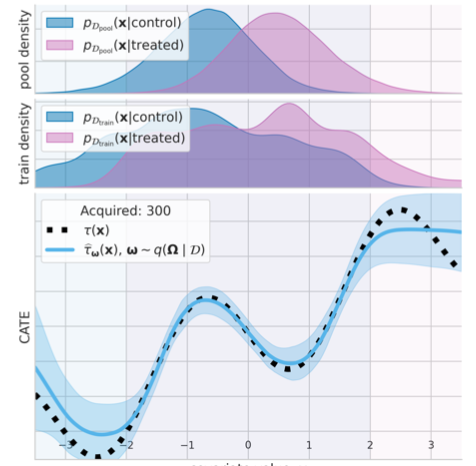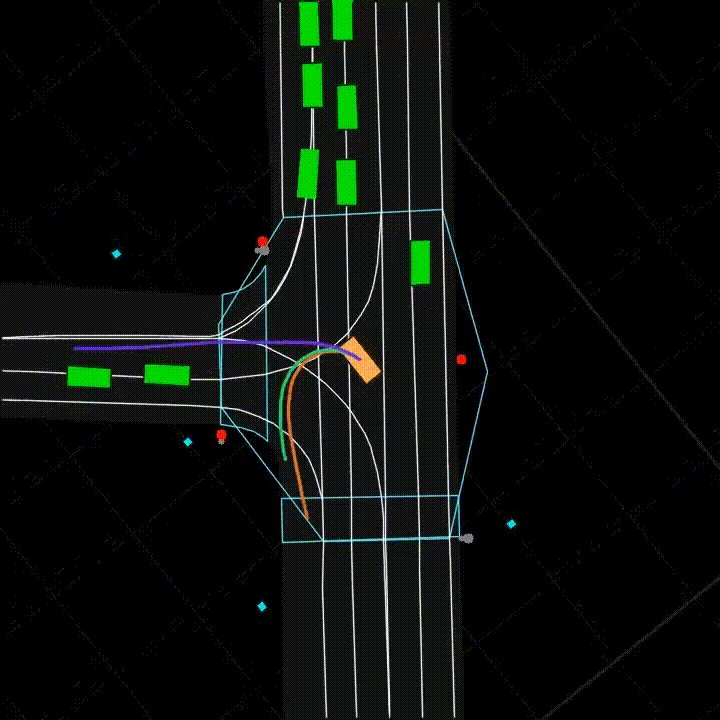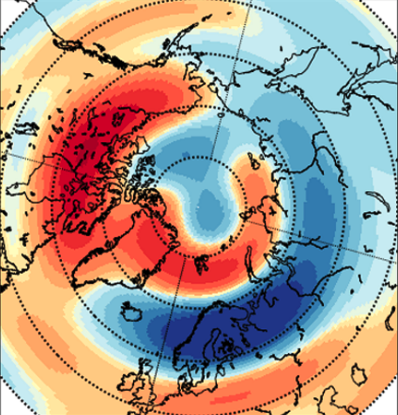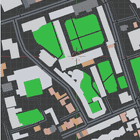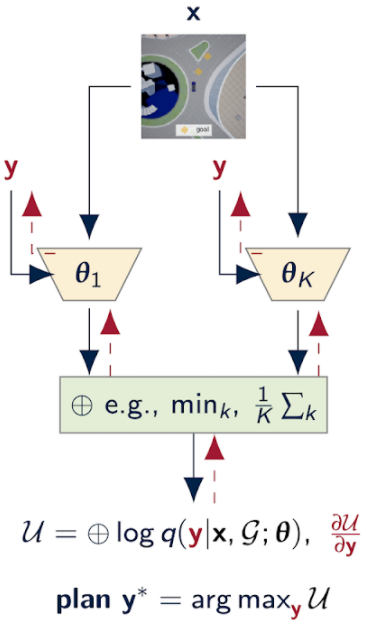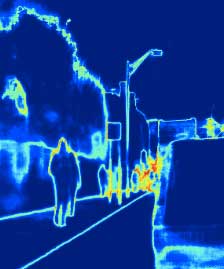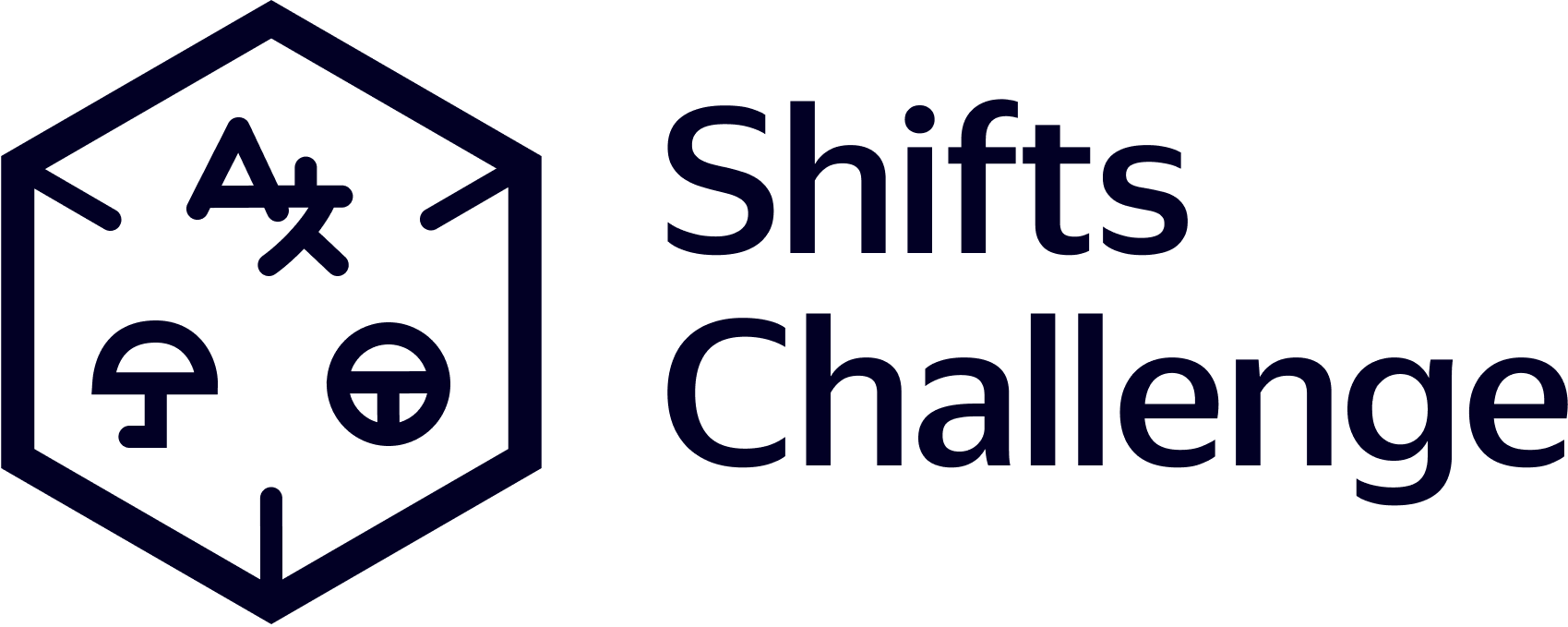Back to all members...
Panagiotis Tigas
PhD, started 2018

Panos is a DPhil student in the OATML group in the Department of Computer Science at the University of Oxford, supervised by Yarin Gal. He is interested in representation learning for control and communication, in single and multi-agent systems. Prior to his DPhil he worked as software engineer for Microsoft (Relevance/NLP), Autodesk (AI/Generative Design), Brave (Privacy Preserving ML) and his own startup Filisia (Special Education Tech). He has an MSc in Machine Learning from University of Bristol. In his spare time, he enjoys making music and interactive art.
News items mentioning Panagiotis Tigas • Publications while at OATML • Reproducibility and Code • Blog Posts
News items mentioning Panagiotis Tigas:
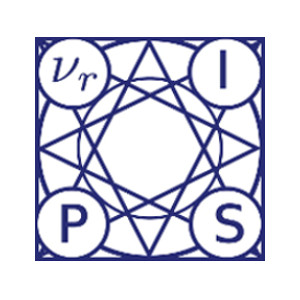
NeurIPS 2021
11 Oct 2021
Thirteen papers with OATML members accepted to NeurIPS 2021 main conference. More information in our blog post.

OATML graduate students receive best reviewer awards and serve as expert reviewers at ICML 2021
06 Sep 2021
OATML graduate students Sebastian Farquhar and Jannik Kossen receive best reviewer awards (top 10%) at ICML 2021. Further, OATML graduate students Tim G. J. Rudner, Pascal Notin, Panagiotis Tigas, and Binxin Ru have served the conference as expert reviewers.

ICML 2021
17 Jul 2021
Seven papers with OATML members accepted to ICML 2021, together with 14 workshop papers. More information in our blog post.
Publications while at OATML:
Causal-BALD: Deep Bauesian Active Learning of Outcomes to Infer Treatment-Effects
Estimating personalized treatment effects from high-dimensional observational data is essential in situations where experimental designs are infeasible, unethical or expensive. Existing approaches rely on fitting deep models on outcomes observed for treated and control populations, but when measuring the outcome for an individual is costly (e.g. biopsy) a sample efficient strategy for acquiring outcomes is required. Deep Bayesian active learning provides a framework for efficient data acquisition by selecting points with high uncertainty. However, naive application of existing methods selects training data that is biased toward regions where the treatment effect cannot be identified because there is non-overlapping support between the treated and control populations. To maximize sample efficiency for learning personalized treatment effects, we introduce new acquisition functions grounded in information theory that bias data acquisition towards regions where overlap is satisfied, by... [full abstract]
Andrew Jesson, Panagiotis Tigas, Joost van Amersfoort, Andreas Kirsch, Uri Shalit, Yarin Gal
NeurIPS, 2021
Shifts: A Dataset of Real Distributional Shift Across Multiple Large-Scale Tasks
There has been significant research done on developing methods for improving robustness to distributional shift and uncertainty estimation. In contrast, only limited work has examined developing standard datasets and benchmarks for assessing these approaches. Additionally, most work on uncertainty estimation and robustness has developed new techniques based on small-scale regression or image classification tasks. However, many tasks of practical interest have different modalities, such as tabular data, audio, text, or sensor data, which offer significant challenges involving regression and discrete or continuous structured prediction. Thus, given the current state of the field, a standardized large-scale dataset of tasks across a range of modalities affected by distributional shifts is necessary. This will enable researchers to meaningfully evaluate the plethora of recently developed uncertainty quantification methods, as well as assessment criteria and state-of-the-art baselines.... [full abstract]
Andrey Malinin, Neil Band, Alexander Ganshin, German Chesnokov, Yarin Gal, Mark J. F. Gales, Alexey Noskov, Andrey Ploskonosov, Liudmila Prokhorenkova, Ivan Provilkov, Vatsal Raina, Vyas Raina, Denis Roginskiy, Mariya Shmatova, Panagiotis Tigas, Boris Yangel
NeurIPS Datasets and Benchmarks Track, 2021
[arXiv] [BibTex] [Code]
[Competition Website] [Blog Post (OATML)] [Blog Post (Yandex Research)]
Global Earth Magnetic Field Modeling andForecasting with Spherical Harmonics Decomposition
Modeling and forecasting the solar wind-driven global magnetic field perturbations is an open challenge. Current approaches depend on simulations of computationally demanding models like the Magnetohydrodynamics (MHD) model or sampling spatially and temporally through sparse ground-based stations (SuperMAG). In this paper, we develop a Deep Learning model that forecasts in Spherical Harmonics space, replacing reliance on MHD models and providing global coverage at oneminute cadence, improving over the current state-of-the-art which relies on feature engineering. We evaluate the performance in SuperMAG dataset (improved by 14.53%) and MHD simulations (improved by 24.35%). Additionally, we evaluate the extrapolation performance of the spherical harmonics reconstruction based on sparse ground-based stations (SuperMAG), showing that spherical harmonics can reliably reconstruct the global magnetic field as evaluated on MHD simulation
Panagiotis Tigas, Téo Bloch, Vishal Upendran, Banafsheh Ferdoushi, Yarin Gal, Siddha Ganju, Ryan M. McGranaghan, Mark C. M. Cheung, Asti Bhatt
Machine Learning and the Physical Sciences Workshop - 34th NeurIPS 2020 [Paper]
Determining new representations of “Geoeffectiveness” using deep learning - AGU 2020
Real2sim: Automatic Generation of Open Street Map Towns For Autonomous Driving Benchmarks
Research in machine learning for autonomous driving (AD) is a constantly evolving field as researchers strive to build a Level 5 autonomous driving system. However, current benchmarks for such learning algorithms do not satisfactorily allow researchers to evaluate and compare performance across safety-critical metrics such as generalizability, out-of-distribution performance, etc. Reasons for this include the expensive nature of data collection from the real-world for autonomous driving and the limitations of software tools currently available for autonomous driving simulators. We develop a pipeline that allows for automatic generation of new town maps for simulator environments from OpenStreetMap [Haklay and Weber, 2008]. We demonstrate that our pipeline is capable of generating towns that, when perceived via LiDAR , share similar footprint to real-world gathered datasets like NuScenes [Caesar et al., 2020]. Additionally, we learn a realistic noise augmentation via Conditional Adv... [full abstract]
Avishek Mondal, Panagiotis Tigas, Yarin Gal
Machine Learning for Autonomous Driving Workshop at the 34th Conference on Neural Information Processing Systems (NeurIPS 2020), Vancouver, Canada. [Paper]
Spatial Assembly: Generative Architecture With Reinforcement Learning, Self Play and Tree Search
With this work we investigate the use of Reinforcement Learning (RL) for generation of spatial assemblies, by combining ideas from Procedural Generation algorithms (Wave Function Collapse algorithm (WFC)) and RL for Game Solving. WFC is a Generative Design algorithm, inspired by Constraint Satisfaction Solvers. In WFC,one defines a set of tiles/blocks and constraints and the algorithm generates an assembly that satisfies these constraints. Casting the problem of generation of spatial assemblies as a Markov Decision Process whose states transitions are defined by WFC, we propose an algorithm that uses Reinforcement Learning and Self-Play to learn a policy that generates assemblies which maximize objectives set by the designer. We demonstrate the use of our Spatial Assembly algorithm in Architecture Design.
Panagiotis Tigas, Tyson Hosmer
Workshop on Machine Learning for Creativity and Design at the 34rd Conference on Neural Information Processing Systems (NeurIPS 2020) [Paper]
Can Autonomous Vehicles Identify, Recover From, and Adapt to Distribution Shifts?
Out-of-training-distribution (OOD) scenarios are a common challenge of learning agents at deployment, typically leading to arbitrary deductions and poorly-informed decisions. In principle, detection of and adaptation to OOD scenes can mitigate their adverse effects. In this paper, we highlight the limitations of current approaches to novel driving scenes and propose an epistemic uncertainty-aware planning method, called _robust imitative planning_ (RIP). Our method can detect and recover from some distribution shifts, reducing the overconfident and catastrophic extrapolations in OOD scenes. If the model's uncertainty is too great to suggest a safe course of action, the model can instead query the expert driver for feedback, enabling sample-efficient online adaptation, a variant of our method we term _adaptive robust imitative planning_ (AdaRIP). Our methods outperform current state-of-the-art approaches in the nuScenes _prediction_ challenge, but since no benchmark evaluating OOD d... [full abstract]
Angelos Filos, Panagiotis Tigas, Rowan McAllister, Nicholas Rhinehart, Sergey Levine, Yarin Gal
ICML, 2020
[Paper] [Code] [Website]
Robust Imitative Planning: Planning from Demonstrations Under Uncertainty
Learning from expert demonstrations is an attractive framework for sequential decision-making in safety-critical domains such as autonomous driving, where trial and error learning has no safety guarantees during training. However, naïve use of imitation learning can fail by extrapolating incorrectly to unfamiliar situations, resulting in arbitrary model outputs and dangerous outcomes. This is especially true for high capacity parametric models such as deep neural networks, for processing high-dimensional observations from cameras or LIDAR. Instead, we model expert behaviour with a model able to capture uncertainty about previously unseen scenarios, as well as inherent stochasticity in expert demonstrations. We propose a framework for planning under epistemic uncertainty and also provide a practical realisation, called robust imitative planning (RIP), using an ensemble of deep neural density estimators. We demonstrate online robustness to out-of-training distribution scenarios on th... [full abstract]
Panagiotis Tigas, Angelos Filos, Rowan McAllister, Nicholas Rhinehart, Sergey Levine, Yarin Gal
NeurIPS2019 Workshop on Machine Learning for Autonomous Driving
[Paper]
Reproducibility and Code
OATomobile: A research framework for autonomous driving
OATomobile is a library for autonomous driving research. OATomobile strives to expose simple, efficient, well-tuned and readable agents, that serve both as reference implementations of popular algorithms and as strong baselines, while still providing enough flexibility to do novel research.
CodeAngelos Filos, Panagiotis Tigas
Blog Posts
13 OATML Conference papers at NeurIPS 2021
OATML group members and collaborators are proud to present 13 papers at NeurIPS 2021 main conference. …
Full post...Jannik Kossen, Neil Band, Aidan Gomez, Clare Lyle, Tim G. J. Rudner, Yarin Gal, Binxin (Robin) Ru, Clare Lyle, Lisa Schut, Atılım Güneş Baydin, Tim G. J. Rudner, Andrew Jesson, Panagiotis Tigas, Joost van Amersfoort, Andreas Kirsch, Pascal Notin, Angelos Filos, 11 Oct 2021
Introducing the Shifts Challenge
We have released the Shifts benchmark for robustness and uncertainty quantification, along with our accompanying NeurIPS 2021 Challenge! We believe that Shifts, which includes the largest vehicle motion prediction dataset to date, will become the standard large-scale evaluation suite for uncertainty and robustness in machine learning. …
Full post...Neil Band, Andrey Malinin, Panagiotis Tigas, Yarin Gal, 06 Aug 2021
21 OATML Conference and Workshop papers at ICML 2021
OATML group members and collaborators are proud to present 21 papers at ICML 2021, including 7 papers at the main conference and 14 papers at various workshops. Group members will also be giving invited talks and participate in panel discussions at the workshops. …
Full post...Angelos Filos, Clare Lyle, Jannik Kossen, Sebastian Farquhar, Tom Rainforth, Andrew Jesson, Sören Mindermann, Tim G. J. Rudner, Oscar Key, Binxin (Robin) Ru, Pascal Notin, Panagiotis Tigas, Andreas Kirsch, Jishnu Mukhoti, Joost van Amersfoort, Lisa Schut, Muhammed Razzak, Aidan Gomez, Jan Brauner, Yarin Gal, 17 Jul 2021
22 OATML Conference and Workshop papers at NeurIPS 2020
OATML group members and collaborators are proud to be presenting 22 papers at NeurIPS 2020. Group members are also co-organising various events around NeurIPS, including workshops, the NeurIPS Meet-Up on Bayesian Deep Learning and socials. …
Full post...Muhammed Razzak, Panagiotis Tigas, Angelos Filos, Atılım Güneş Baydin, Andrew Jesson, Andreas Kirsch, Clare Lyle, Freddie Kalaitzis, Jan Brauner, Jishnu Mukhoti, Lewis Smith, Lisa Schut, Mizu Nishikawa-Toomey, Oscar Key, Binxin (Robin) Ru, Sebastian Farquhar, Sören Mindermann, Tim G. J. Rudner, Yarin Gal, 04 Dec 2020
13 OATML Conference and Workshop papers at ICML 2020
We are glad to share the following 13 papers by OATML authors and collaborators to be presented at this ICML conference and workshops …
Full post...Angelos Filos, Sebastian Farquhar, Tim G. J. Rudner, Lewis Smith, Lisa Schut, Tom Rainforth, Panagiotis Tigas, Pascal Notin, Andreas Kirsch, Clare Lyle, Joost van Amersfoort, Jishnu Mukhoti, Yarin Gal, 10 Jul 2020
Can Autonomous Vehicles Identify, Recover From, and Adapt to Distribution Shifts?
In autonomous driving, we generally train models on diverse data to maximize the coverage of possible situations the vehicle may encounter at deployment. Global data coverage would be ideal, but impossible to collect, necessitating methods that can generalize safely to new scenarios. As human drivers, we do not need to re-learn how to drive in every city, even though every city is unique. Hence, we’d like a system trained in Pittsburgh and Los Angeles to also be safe when deployed in New York, where the landscape and behaviours of the drivers is different. …
Full post...Angelos Filos, Panagiotis Tigas, Rowan McAllister, Nicholas Rhinehart, Sergey Levine, Yarin Gal, 09 Jul 2020
25 OATML Conference and Workshop papers at NeurIPS 2019
We are glad to share the following 25 papers by OATML authors and collaborators to be presented at this NeurIPS conference and workshops. …
Full post...Angelos Filos, Sebastian Farquhar, Aidan Gomez, Tim G. J. Rudner, Zac Kenton, Lewis Smith, Milad Alizadeh, Tom Rainforth, Panagiotis Tigas, Andreas Kirsch, Clare Lyle, Joost van Amersfoort, Yarin Gal, 08 Dec 2019


